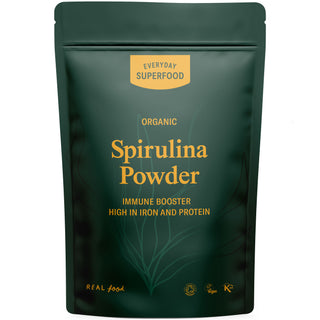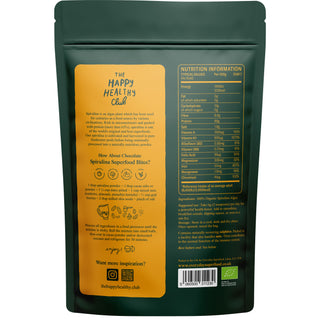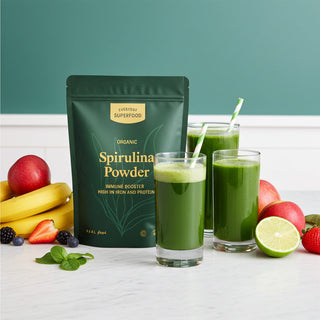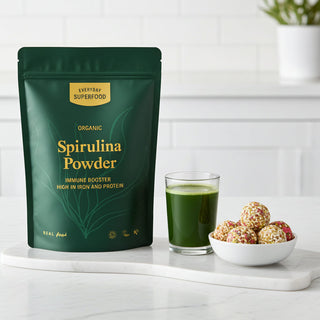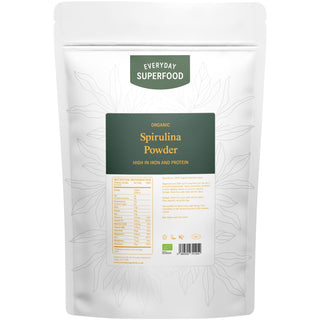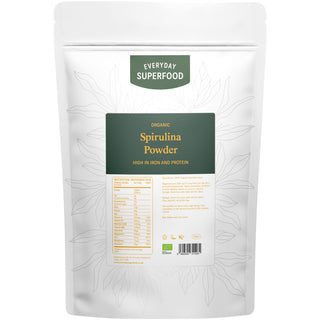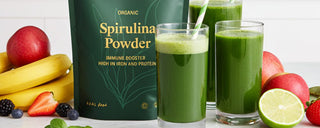

Spirulina: Nutrition Facts – Benefits, Calories & Protein Content per 100g
Organic spirulina powder is renowned for its dense nutritional profile. Whether you're focused on protein intake, micronutrients, or superfood comparisons, knowing the spirulina nutrition value per 100g is essential for making informed dietary decisions.
Below is a complete nutrition breakdown of dried spirulina powder based on average values. These figures are especially relevant for food brands, retailers, and health-focused consumers planning for compliance, labelling, or supplementation.
100g Organic Spirulina Nutritional Information
| Nutrient | Per 100g | %RI* |
|---|---|---|
| Energy | 336 kcal | |
| Fat | 0.2 g | |
| of which saturates | 0.1 g | |
| Carbohydrate | 8.0 g | |
| of which sugars | 0.8 g | |
| Fibre | 8.4 g | |
| Protein | 62.8 g | |
| Salt | 0.128 g | |
| Vitamin A | 1248 µg | 156% |
| Vitamin K1 | 8050 µg | 1073% |
| Riboflavin (B2) | 0.86 mg | 61% |
| Vitamin B6 | 0.72 mg | 51% |
| Folic Acid | 94 µg | 47% |
| Magnesium | 270 mg | 72% |
| Iron | 57 mg | 407% |
| Manganese | 5.7 mg | 285% |
| Chromium | 41 µg | 102% |
*Reference intake of an average adult (8400kJ / 2000kcal)
Why Spirulina Nutrition Matters
Spirulina is a powerhouse of plant-based protein, iron, and antioxidants. Its nutrient density makes it ideal for vegan, athletic, and detox-focused diets. Thanks to its naturally high protein content (over 60%), spirulina contributes to muscle repair, immune health, and natural energy support. It's also one of the few algae sources with complete amino acids.
Key Nutritional Highlights
- ✔️ Over 60% protein – complete plant-based source
- ✔️ Naturally rich in chlorophyll, iron, and B vitamins
- ✔️ Low in fat and sugar, yet nutrient-dense
- ✔️ Suitable for vegan, keto, and gluten-free diets

